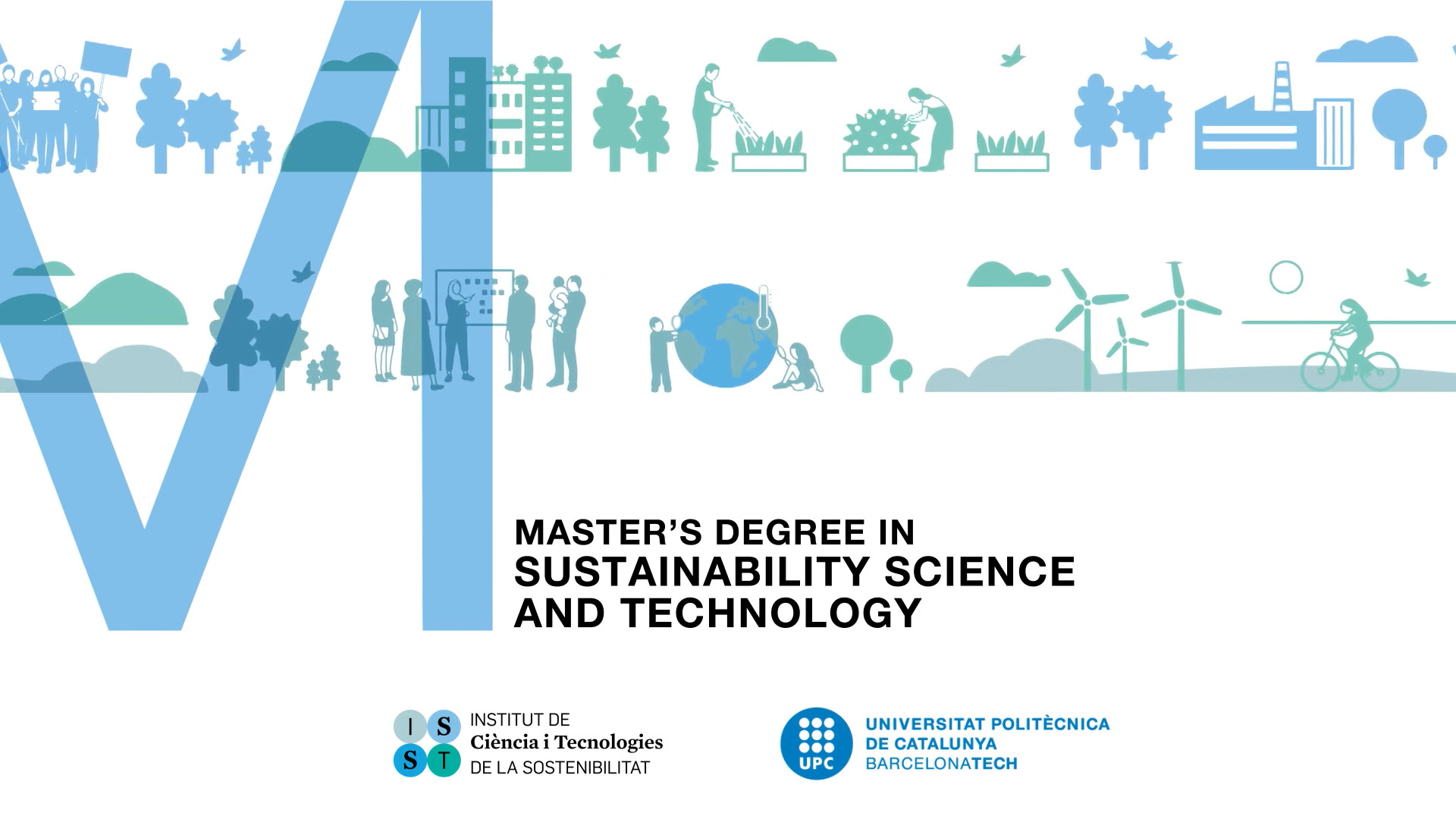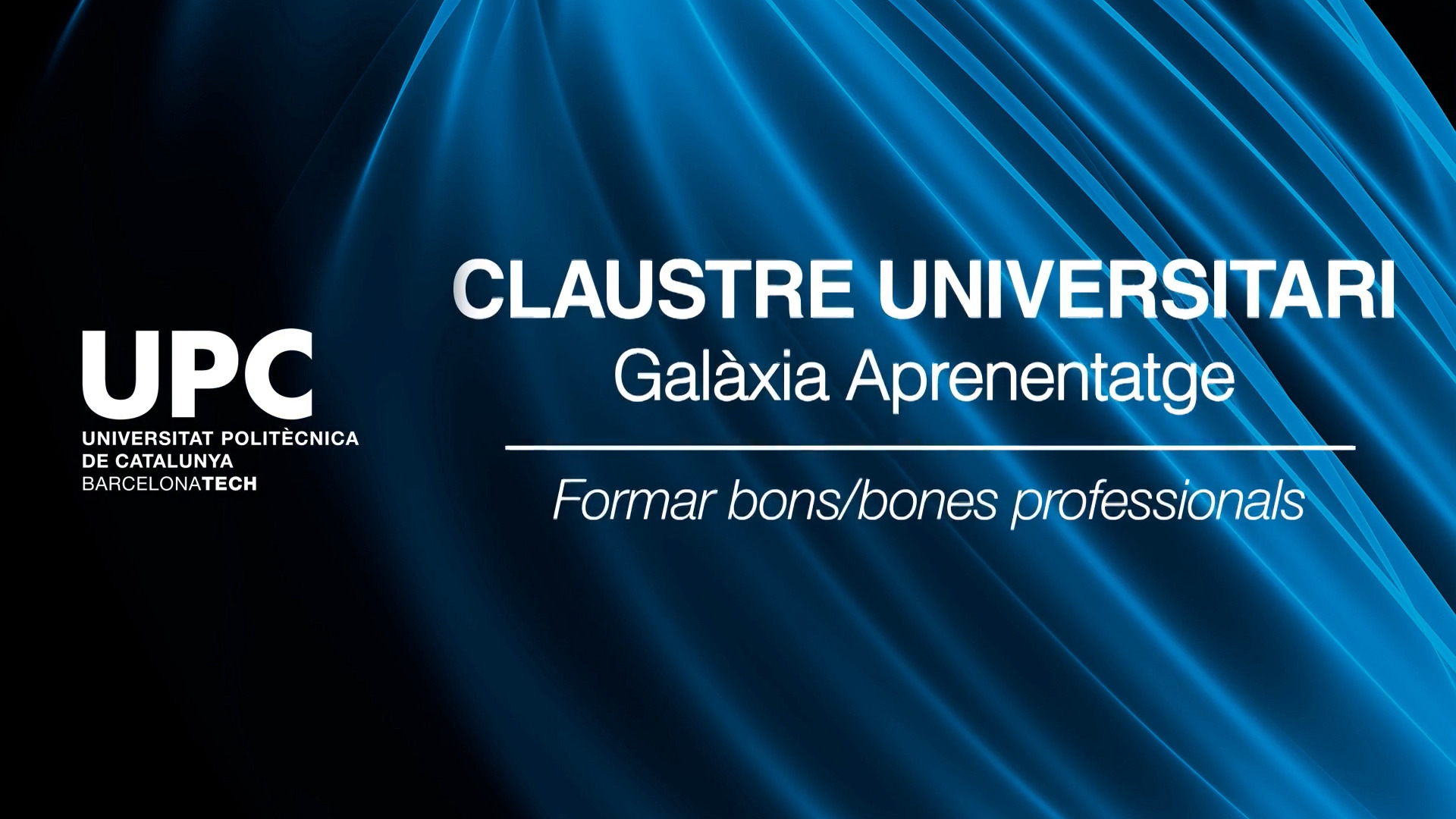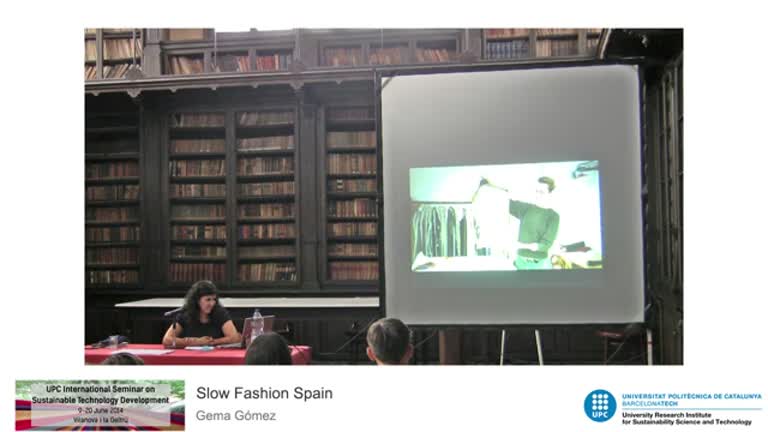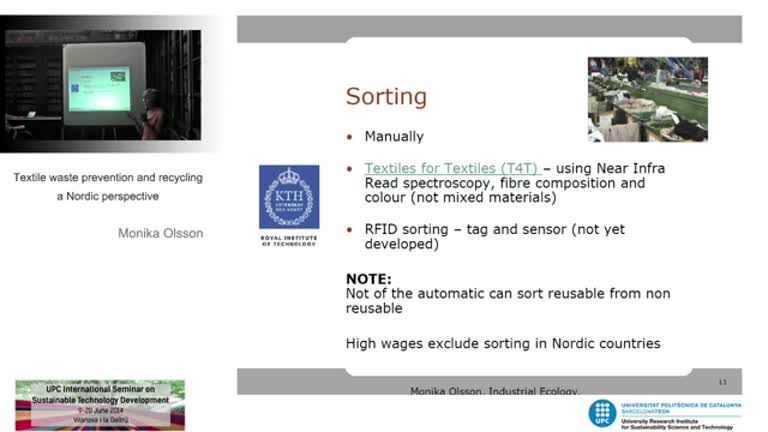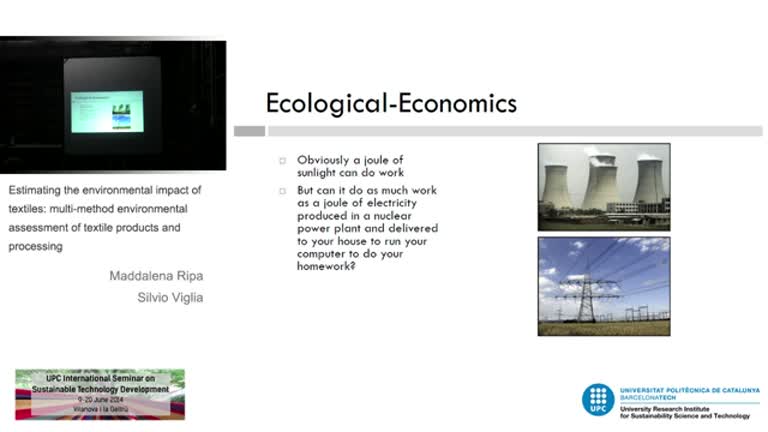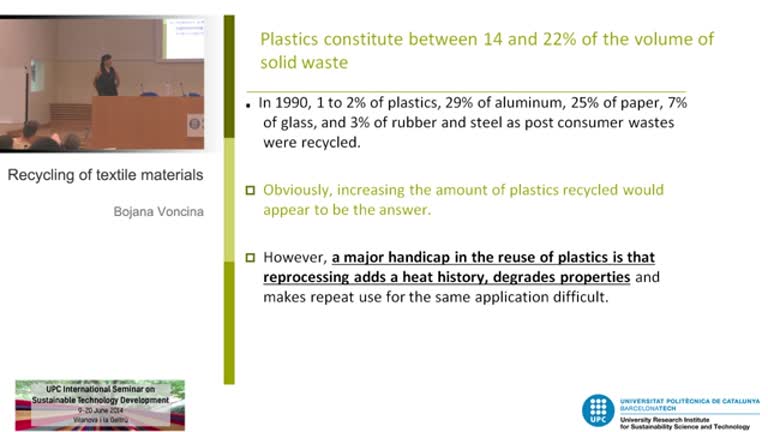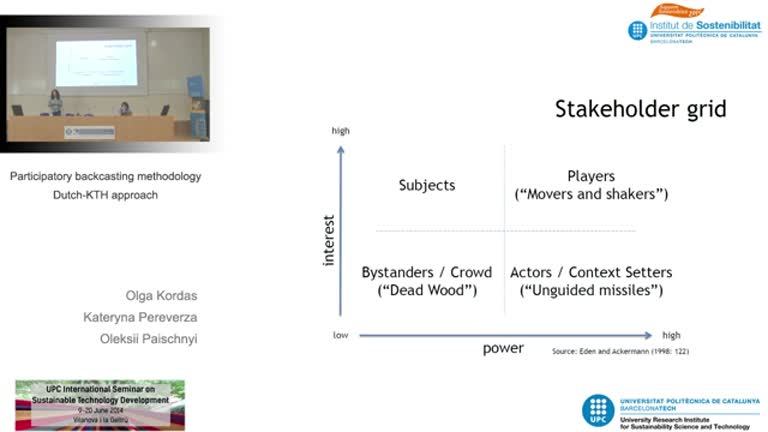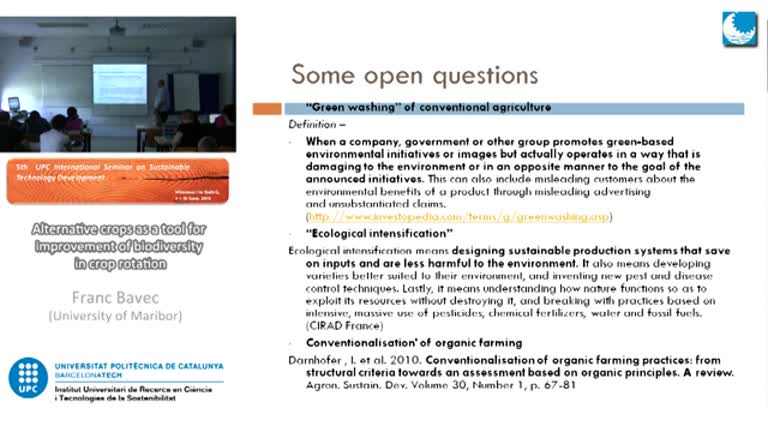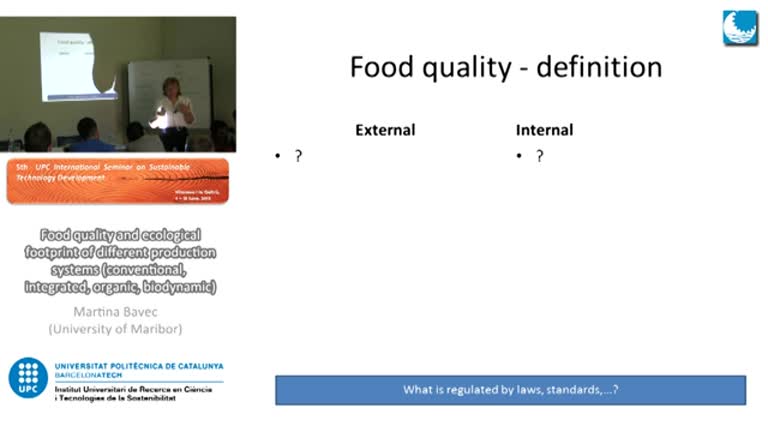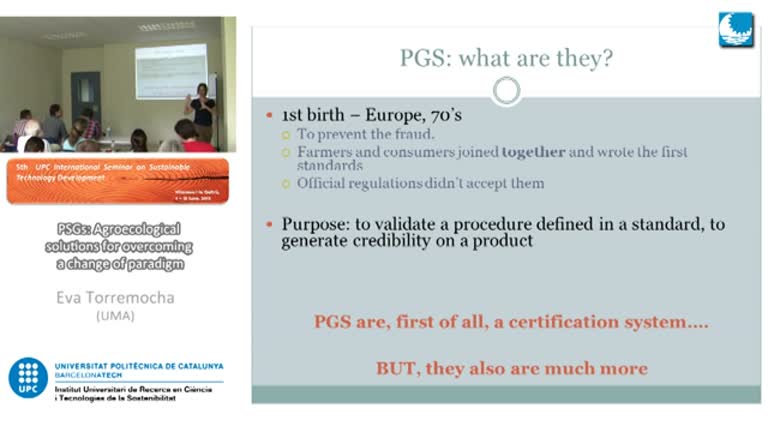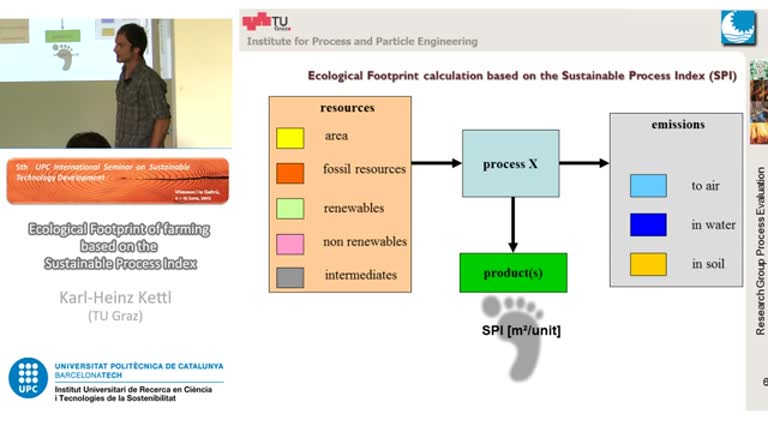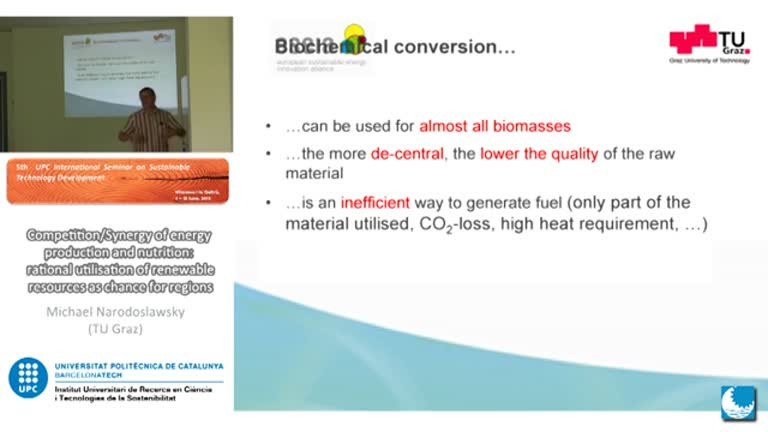Objectes multimèdia amb l’etiqueta: Institut Universitari de Recerca en Ciència i Tecnologies de la Sostenibilitat
Resultats de la cerca
Presentació del Màster en Ciència i Tecnologia de la Sostenibilitat
Accés obert
14 de març 2025
Presentació del Màster en Ciència i Tecnologia de la Sostenibilitat de la Universitat Politècnica de Catalunya
Eva Vidal: Formar bons i bones professionals
Accés obert
29 de set. 2022
Eva Vidal López, professora de l'Escola Tècnica Superior d'Enginyeria de Telecomunicació de Barcelona (ETSETB) i del Departament d'Enginyeria Electrònica, explica una experiència d'innovació docent.
La reflexió i el debat sobre l’experiència d’aprenentatge a la Universitat i les línies estratègiques per a un nou model docent centren el Claustre Universitari de la UPC, els dies 4 i 7 d’octubre.
La reflexió i el debat sobre l’experiència d’aprenentatge a la Universitat i les línies estratègiques per a un nou model docent centren el Claustre Universitari de la UPC, els dies 4 i 7 d’octubre.
Slow Fashion Spain
Accés obert
13 de juny 2014
Conferència a càrrec de Gema Gómez de l'empresa Slow Fashion Spain sobre principis ètics de la producció de moda tèxtil, dins el marc del 7th International Seminar on Sustainable Technology Development: Sustainable Clothing: Production and Consumption que es va dur a terme del 9 al 20 de juny de 2014.
Estimating the environmental impact of textiles : multimethod environmental assessment of textile products and processing
Accés obert
11 de juny 2014
Conferència sobre la petjada ecològica dels teixits, a càrrec de Maddalena Ripa i Silvio Viglia de la parthenope University, dins el marc del 7th International Seminar on Sustainable Technology Development: Sustainable Clothing: Production and Consumption que es va dur a terme del 9 al 20 de juny de 2014.
Recycling of textile materials
Accés obert
10 de juny 2014
Conferència sobre el reciclatge de materials tèxtils, a càrrec de Bojana Voncina del Department of textile materials design. University of Maribor, dins el marc del 7th International Seminar on Sustainable Technology Development: Sustainable Clothing: Production and Consumption que es va dur a terme del 9 al 20 de juny de 2014.
Alternative crops as a tool for improvement of biodiversity in crop rotation
Accés obert
13 de juny 2012
PSGs : agroecological solutions for overcoming a change of paradigm
Accés obert
11 de juny 2012
Participatory Systems of Guarantee (PSGs) arise when proposed by civil society, revolving around the production and commercialization of ecological foods. They are constructed as an alternative to the model of certification by a third party, in order to guarantee that productive initiatives which are not covered by the official system are still able to access the certified product sector / market.
Their dynamism is that they are constantly evaluating and reviewing their structures and procedures, as a result of their constant interaction with their environment. Given this characteristic, in reality PSGs are reaching great levels of complexity, not only internally – as part of the same system – but in a global sense, where organizations are using a number of them in line with diverse criteria.
Their social design and focus on the system, as well as the sensitivity that they show for processes of co-evolution, allow us to visualize them as one of the possible tools that will permit the transition from one system to another.
The systems themselves (integrated in political agroecology), and the activities that they encourage, widen the options for agroecological approaches. These can then be applied in territories that are working towards greater sustainability.
Their dynamism is that they are constantly evaluating and reviewing their structures and procedures, as a result of their constant interaction with their environment. Given this characteristic, in reality PSGs are reaching great levels of complexity, not only internally – as part of the same system – but in a global sense, where organizations are using a number of them in line with diverse criteria.
Their social design and focus on the system, as well as the sensitivity that they show for processes of co-evolution, allow us to visualize them as one of the possible tools that will permit the transition from one system to another.
The systems themselves (integrated in political agroecology), and the activities that they encourage, widen the options for agroecological approaches. These can then be applied in territories that are working towards greater sustainability.


